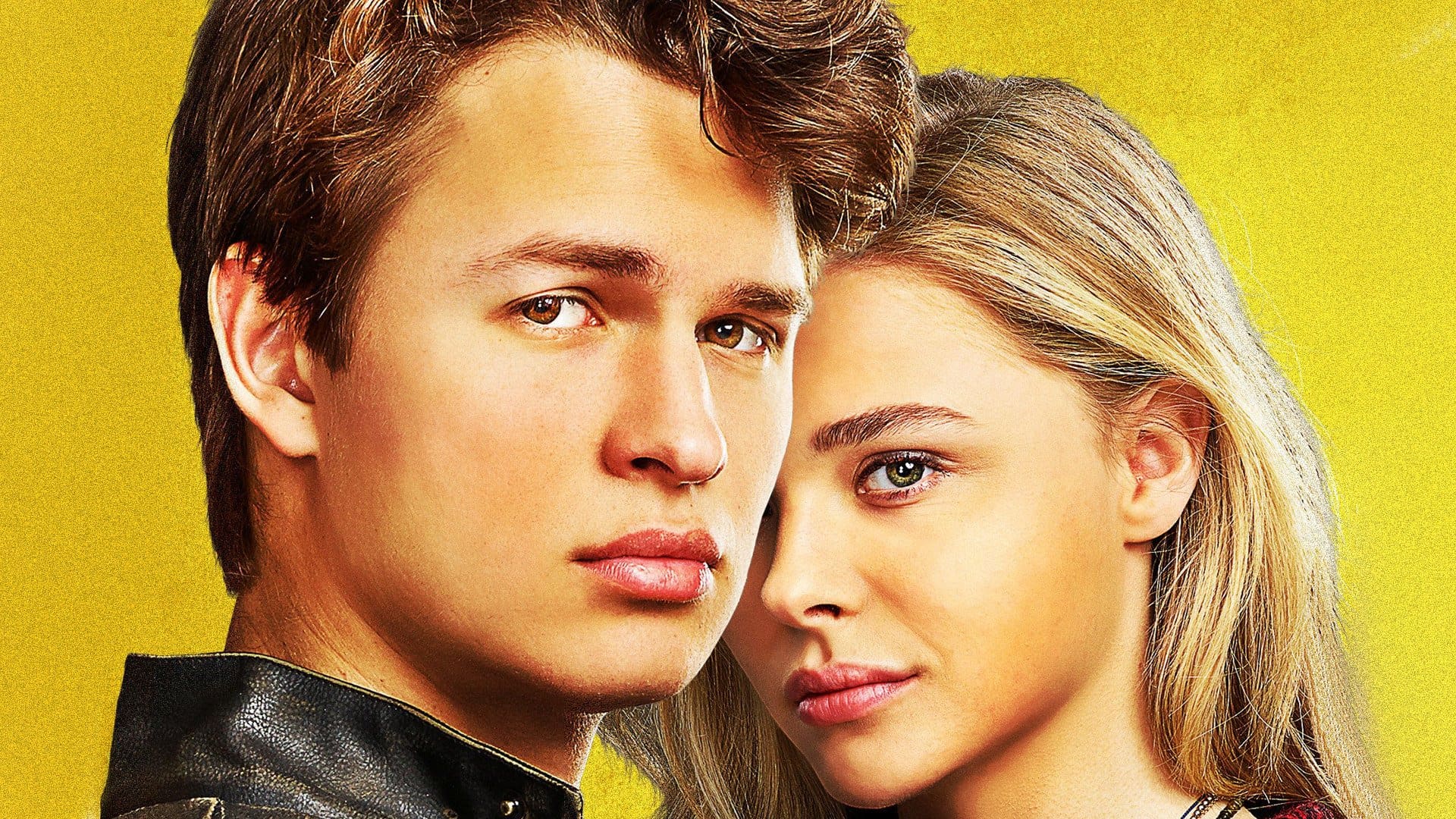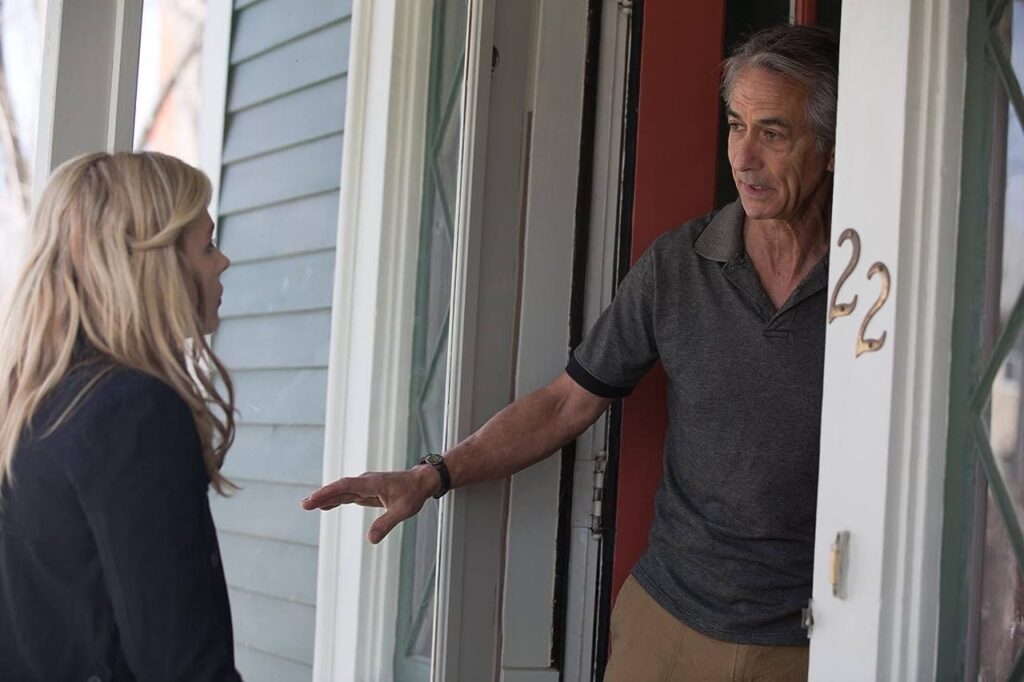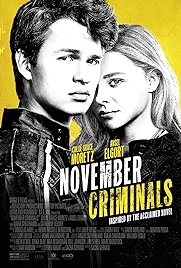In reverse chronological order November Criminals can refer to this movie from 2017, the book by Sam Munson on which it’s based or the German government in 1918, the one that signed the armistice that ended the First World War – the “November criminals” is what purveyors of the “stab in the back” myth called them at any rate (according to which the elites of Germany “stabbed” their own people by surrendering).
Does the last have anything to do with the first two? I have no idea, and having watched the film but not read the book cannot see any connection. But then there is a general sense watching the film that something is missing, something that would connect all the various bits together.
There are three different movies here, all competing for space. All star Ansel Elgort and Chloë Grace Moretz as smart and attractive high-schoolers on the cusp of starting their adult life. In one, Addison (Elgort) is a son attempting to process grief after the recent death of his mother. In another, Addison and Phoebe (Moretz) decide, kind of flippantly, to sleep with each other, mostly to get the whole virginity thing out of the way, and then find that they’ve kind-of-accidentally backed into falling in love. In the third, Addison is propelled into becoming a teenage gumshoe when the police won’t properly investigate the murder of a friend – he was black, ergo it was gang related, the cops have surmised.
None of these plots really gets enough space to develop and in any case the emotional demands they put on a viewer pull in different directions – a contemplative drama about grief, a tentatively joyous romance, a jeopardy-laced thriller.
Addison spaces about being disruptive and moody, then has a bit of afternoon delight with Phoebe, then decides to investigate the killing himself, rinse and repeat, with no real carry-over from one situation to the other, no sense of how, say, a grieving teenager might embark on his first sexual adventure, or how being recently sexually gratified might change a grieving teenager’s approach to finding a murderer the police don’t seem to want to find.
Confusing enough. But on top of these emotions and people all jumbling about together is David Strathairn, as Addison’s father, and Catherine Keener as Phoebe’s mother. Neither of them slouches, both attempting in the limited amount of screen time they have to inject a note of pathos as the parents who cannot quite express their love for their much-loved offspring. Both come across as slighty bewildered, as well they might be.
It feels like a bold experiment that hasn’t quite come off, especially when you look at the key talent involved – in 2017, having already worked with Martin Scorsese, Tim Burton and Olivier Assayas, Moretz could take her pick of quality work; Elgort had just made Baby Driver and was pretty hot; director Sacha Gervasi had a solid, zig-zagging track record (he directed 2008’s Anvil: The Story of Anvil and 2012’s Hitchcock and co-wrote The Terminal for Steven Spielberg) and the co-writer is Steven Knight, who generally has a golden touch (he created Peaky Blinders and wrote and directed Locke, starring Tom Hardy). He was originally meant to direct but in the end Gervasi got the gig and took another crack at Knight’s screenplay.
Which might explain why the grief strand is so under-exploited that it can be entirely dismissed. The love strand doesn’t really go anywhere either, though Addison and Phoebe are a nice couple and – in the way of trying to think the best of people – we wish them well. Which leaves the slow-moving murder/detective strand, which gets the most screen time, most of it circling around a teenage kid being all at sea in world he is not familiar with (even though every juddering cliché is familiar to us).
It’s not Brick or The Kid Detective, in other words.
As for the decision to make Addison a fan of David Bowie – his version of Wild Is the Wind gets a few airings, as does Life on Mars – this also just seems dropped in, as if in a hasty writers’ meeting it was felt that some grain needed to be added and so someone took a spin on the “moods and textures” roulette wheel.
Perhaps best see it as a psychological exercise in attempting to crunch through a gearbox of emotion without a clutch. Or as an arthouse prank.
November Criminals – Watch it/buy it at Amazon
I am an Amazon affiliate
© Steve Morrissey 2023


